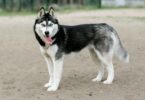Are you ready to welcome a gentle giant into your home? Newfoundland puppies, affectionately called “Newfies,” are more than just pets—they’re loyal companions known for their calm, friendly nature. Originating from Newfoundland, Canada, this breed has a rich history as water rescue dogs, making them naturally inclined to help and protect.
With their webbed paws and thick, water-resistant coats, Newfoundlands are built for both land and water. Despite their large size—males can weigh between 130 and 150 pounds—these dogs are famously gentle, earning them the nickname “nanny dogs” for their patient and protective demeanor around children. Their size and strength make them a striking presence, but it’s their heart that truly sets them apart.
Before bringing a Newfoundland puppy home, it’s important to consider their specific needs. These dogs require regular grooming to manage their heavy coats and need space to move comfortably. Their life expectancy ranges from 8 to 10 years, so it’s a long-term commitment to provide the care and love they deserve.
If you’re looking for a breed that balances power with a loving personality, the Newfoundland might be the perfect fit. Their unique blend of historical working traits and modern family-friendly qualities makes them a cherished companion for many families.
Caring for Your Newfoundland Puppies
Caring for a large breed like Newfoundland puppies requires attention to their specific needs. These gentle giants thrive on a routine that supports their growth and overall health.
Essential Feeding and Nutrition Guidelines
Feeding your Newfoundland puppy the right diet is crucial. An AAFCO-compliant dog food designed for large breeds is ideal. These diets provide the right balance of protein, fat, and carbs to support healthy growth. Puppies typically need more frequent meals than adults, so consulting a vet for a feeding schedule is a good idea.
To prevent bloat and GDV, use slow feeder bowls and avoid raised feeding platforms. These simple steps can make mealtime safer and more enjoyable for your pet.
Key Health and Safety Considerations
Monitoring your dog’s health is vital. Look out for signs of illness and seek vet care immediately if you notice anything unusual. Regular check-ups and a balanced diet help prevent common issues in large breeds.
A well-fed and healthy Newfoundland is a happy one. By following these guidelines, you can ensure your dog leads a long, active life. For more tips on caring for your dog, visit our expert care tips page.
Training, Behavior, and Socialization Tips
Training your dog is essential to manage their strength and natural behaviors. Early socialization helps prevent separation anxiety and establishes good leash manners. Positive reinforcement and consistency are key to successful training.
Early Obedience and Leash Training
Start with short, fun training sessions to keep your dog engaged. Use positive reinforcement techniques like treats and praise to encourage good behavior. For leash training, begin in a quiet area with minimal distractions and gradually introduce busier environments.
Invest in a well-fitting harness and a comfortable leash. Avoid pulling back if your dog pulls, as this can create a tug-of-war scenario. Instead, stop and encourage your dog to come to your side before continuing the walk.
Managing Separation Anxiety and Social Interactions
Separation anxiety is common in large breeds. To address this, establish a consistent daily routine and use interactive toys filled with treats to keep your dog occupied when you’re away. Gradually increase your time away to help your dog become comfortable with solitude.
Socialization is crucial for your dog’s emotional development. Introduce your dog to various environments, people, and other animals to help them become confident and calm in new situations. Consider enrolling in puppy socialization classes to provide structured exposure to different stimuli.
Essential Grooming and Maintenance Practices
Grooming is a cornerstone of caring for your dog, especially for breeds with thick coats. A Newfoundland’s double coat requires consistent attention to stay healthy and look its best.
Coat, Skin, and Eye Care Routines
A effective grooming routine starts with weekly brushing to manage shedding and prevent matting. Use a high-quality brush or comb designed for thick coats. Bathe your dog monthly, or as needed, using a gentle, dog-friendly shampoo to keep their coat clean without stripping natural oils.
Regular skin and eye care is also crucial. Clean your dog’s eyes daily to prevent infections, and check for any signs of irritation. Their floppy ears should be cleaned weekly to avoid infections, and trim the hair around the ears for better airflow.
Grooming is about more than appearance—it supports overall health. Regular brushing helps distribute skin oils, promoting a healthy coat and reducing shedding. It also strengthens the bond between you and your dog.
For more tips on managing your dog’s coat, visit our guide on coat care. With consistent grooming, you can ensure your dog leads a happy, healthy life.
Understanding Breed Characteristics and Health Considerations
When considering bringing a new dog into your home, it’s essential to understand the breed’s unique traits and potential health challenges. This knowledge helps you provide the best care and ensure your pet leads a happy, healthy life.
Physical Attributes and Lifespan Insights
Standing between 25-28 inches tall and weighing 100-150 pounds, this breed is known for its robust build and distinctive double coat. Their average lifespan ranges from 8 to 10 years, making long-term care a commitment.
Regular veterinary checkups and tailored exercise routines are crucial for maintaining their health. These practices help monitor growth and address any potential issues early on.
Common Health Issues and Preventive Measures
Like many large breeds, they are prone to conditions like bloat, hip dysplasia, and osteosarcoma. Preventive measures include a balanced diet and avoiding excessive exercise after meals.
Working with a reputable breeder who conducts health screenings can significantly reduce the risk of inherited issues. Regular grooming and a supportive home environment also play vital roles in their overall well-being.
For more information on caring for your pet, visit our guide on golden retriever care. By staying informed, you can help your dog enjoy a long, active life.
Final Thoughts on Welcoming Newfoundland Puppies into Your Home
Welcoming a gentle giant into your home is a decision that brings immense joy and responsibility. Newfoundland puppies, with their calm and protective nature, quickly become cherished family members. Their transition into a loving home is a life-changing experience, as shared by many families who’ve embraced these gentle companions.
When considering bringing a dog into your home, it’s essential to weigh the options between working with a reputable breeder and adoption. Both paths offer unique rewards, and understanding their differences can lead to a more informed decision. Real-life stories highlight how these dogs adapt beautifully to family life, showcasing their gentle behavior and life-enhancing presence.
A well-rounded approach to care, including socialization, health monitoring, and structured training, ensures your pet thrives. Regular grooming and a balanced diet are just the start. Considering both the emotional and practical aspects of owning a large breed helps prepare you for the commitment ahead.
Informed decisions pave the way for a successful, long-term relationship with your pet. By understanding their needs and providing a loving environment, you set the stage for a lifetime of happiness and companionship. Embrace the journey with confidence, knowing you’re creating a home filled with love and care for your new furry friend.
FAQ
How much exercise does a Newfoundland puppy need daily?
Newfoundland puppies require moderate exercise, about 20-30 minutes daily. This includes walks and playtime to support their growth and health.
Can I adopt a Newfoundland through a rescue organization?
Yes, many rescue organizations specialize in rehoming Newfoundlands. They help find forever homes for dogs in need, ensuring a smooth transition for both the dog and the new owner.
How big will my Newfoundland puppy get as an adult?
Newfoundlands are a large breed. Males typically weigh between 130-150 pounds and stand 28 inches tall, while females are slightly smaller, weighing around 100-120 pounds and standing 26 inches tall.










Leave a Comment